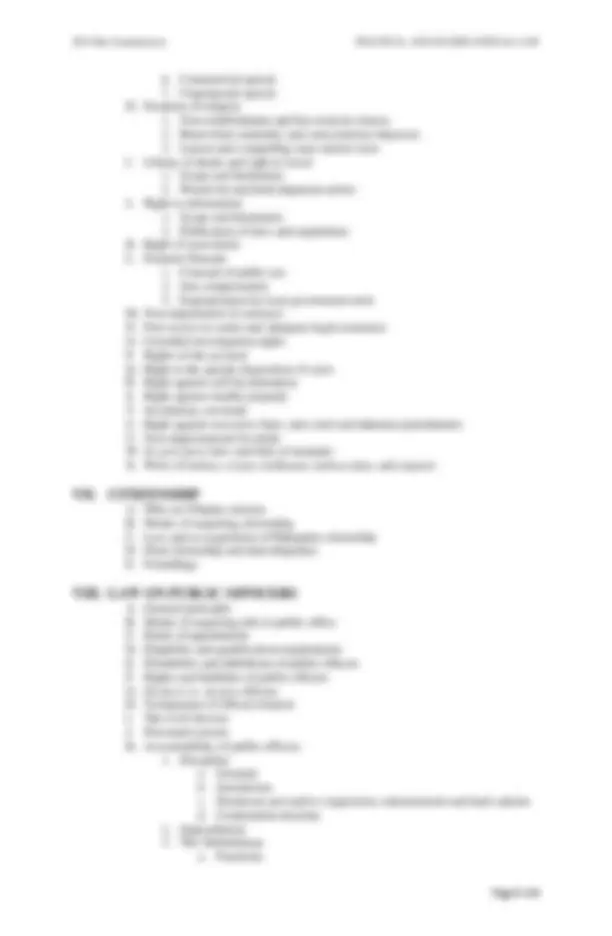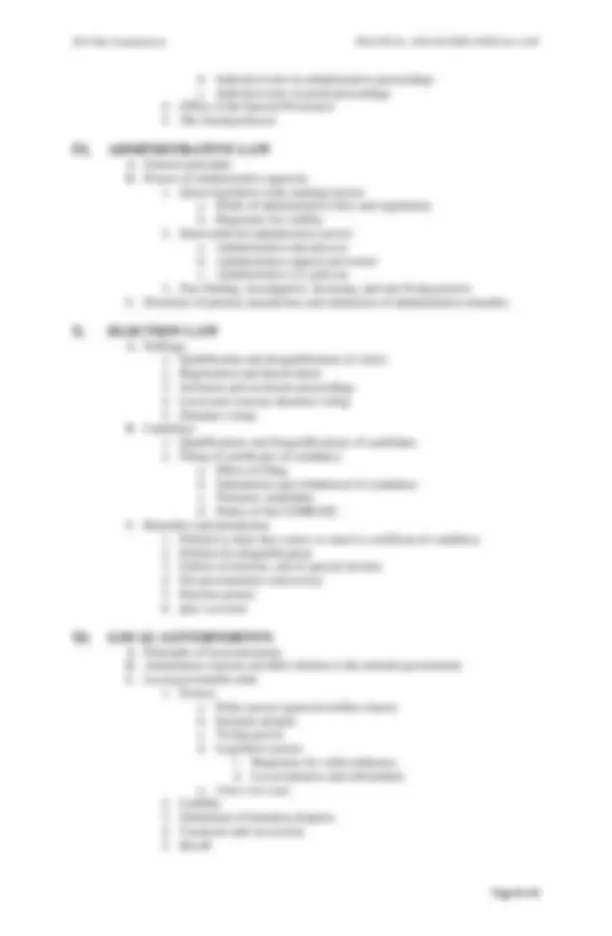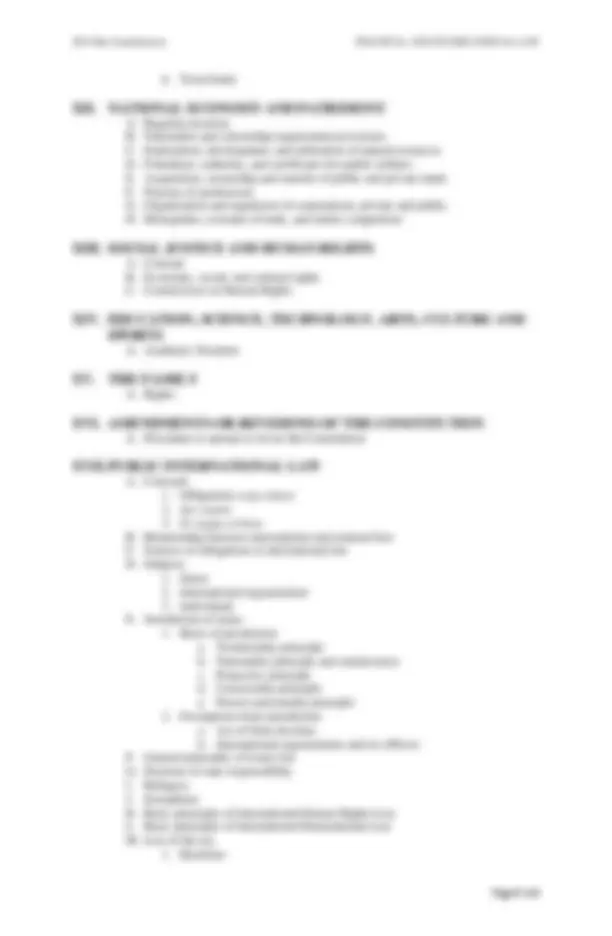





Study with the several resources on Docsity

Earn points by helping other students or get them with a premium plan


Prepare for your exams
Study with the several resources on Docsity

Earn points to download
Earn points by helping other students or get them with a premium plan
Community
Ask the community for help and clear up your study doubts
Discover the best universities in your country according to Docsity users
Free resources
Download our free guides on studying techniques, anxiety management strategies, and thesis advice from Docsity tutors
The syllabus for the Political and International Law subject of the 2019 Bar Examinations in the Philippines. It covers key topics under the core subject, including preliminary provisions, legislative department, executive department, judicial department, constitutional commissions, Bill of Rights, citizenship, law on public officers, administrative law, election law, local governments, national economy and patrimony, social justice and human rights, education, science, technology, arts, culture and sports, family, amendments or revisions of the Constitution, public international law, refugees, extradition, and basic principles of International Human Rights Law and International Humanitarian Law, among others.
Typology: Schemes and Mind Maps
1 / 6

This page cannot be seen from the preview
Don't miss anything!




NOTE: This syllabus is an outline of the key topics that fall under the core subject “Political and International Law”. Accordingly, all Bar candidates should be guided that only laws, rules, issuances, and jurisprudence pertinent to these topics as of June 30, 2018 are examinable materials within the coverage of the 2019 Bar Examinations.
A. National territory B. Declaration of principles and State policies C. Separation of powers D. Checks and balances E. State immunity
A. Legislative power
A. Qualifications, election, and term of the President and Vice-President B. Privileges, inhibitions, and disqualifications C. Powers of the President
D. Rules of succession
A. Judicial power B. Judicial review
A. Common provisions B. Powers and functions of the CSC, COMELEC, and COA C. Composition and qualifications of members D. Prohibited offices and interests E. Review of final orders, resolutions, and decisions
A. Fundamental powers of the State
b. Judicial review in administrative proceedings c. Judicial review in penal proceedings
A. General principles B. Powers of administrative agencies
A. Suffrage
A. Principles of local autonomy B. Autonomous regions and their relation to the national government C. Local government units
A. Regalian doctrine B. Nationalist and citizenship requirement provisions C. Exploration, development, and utilization of natural resources D. Franchises, authority, and certificates for public utilities E. Acquisition, ownership and transfer of public and private lands F. Practice of professions G. Organization and regulation of corporations, private and public H. Monopolies, restraint of trade, and unfair competition
A. Concept B. Economic, social, and cultural rights C. Commission on Human Rights
A. Academic Freedom
A. Rights
A. Procedure to amend or revise the Constitution
A. Concepts